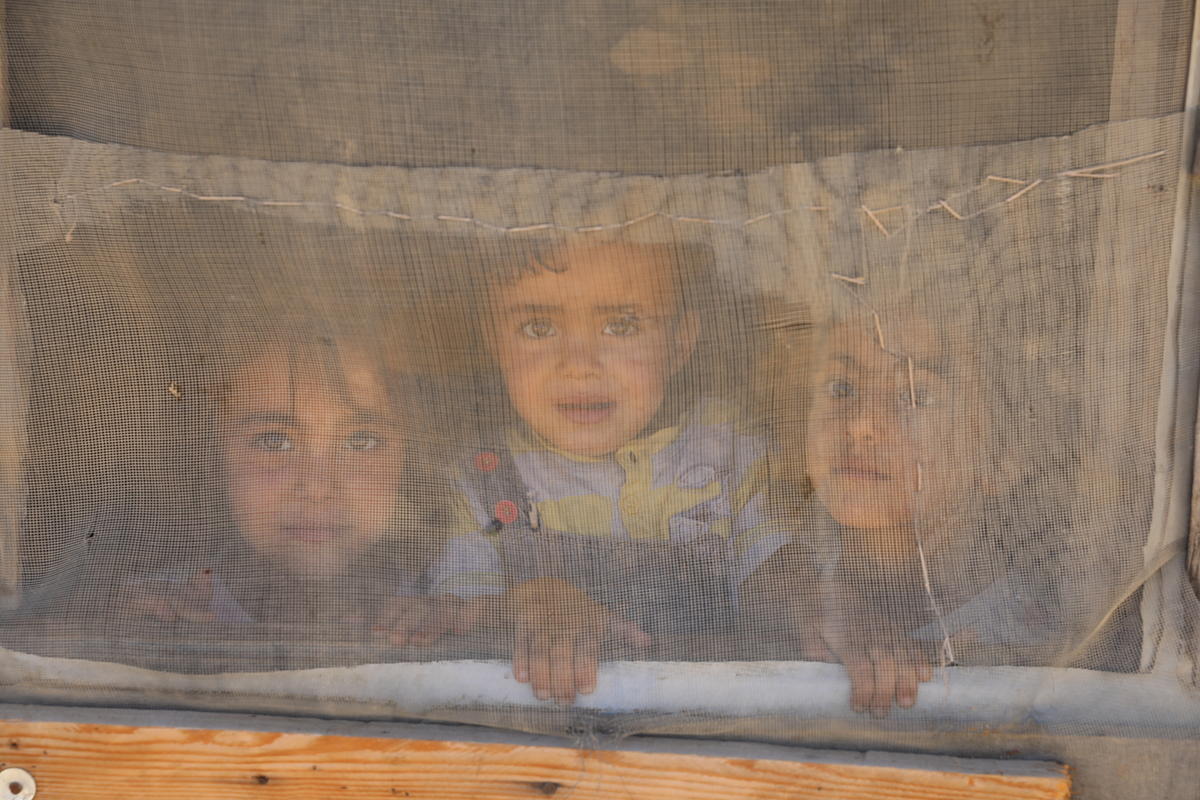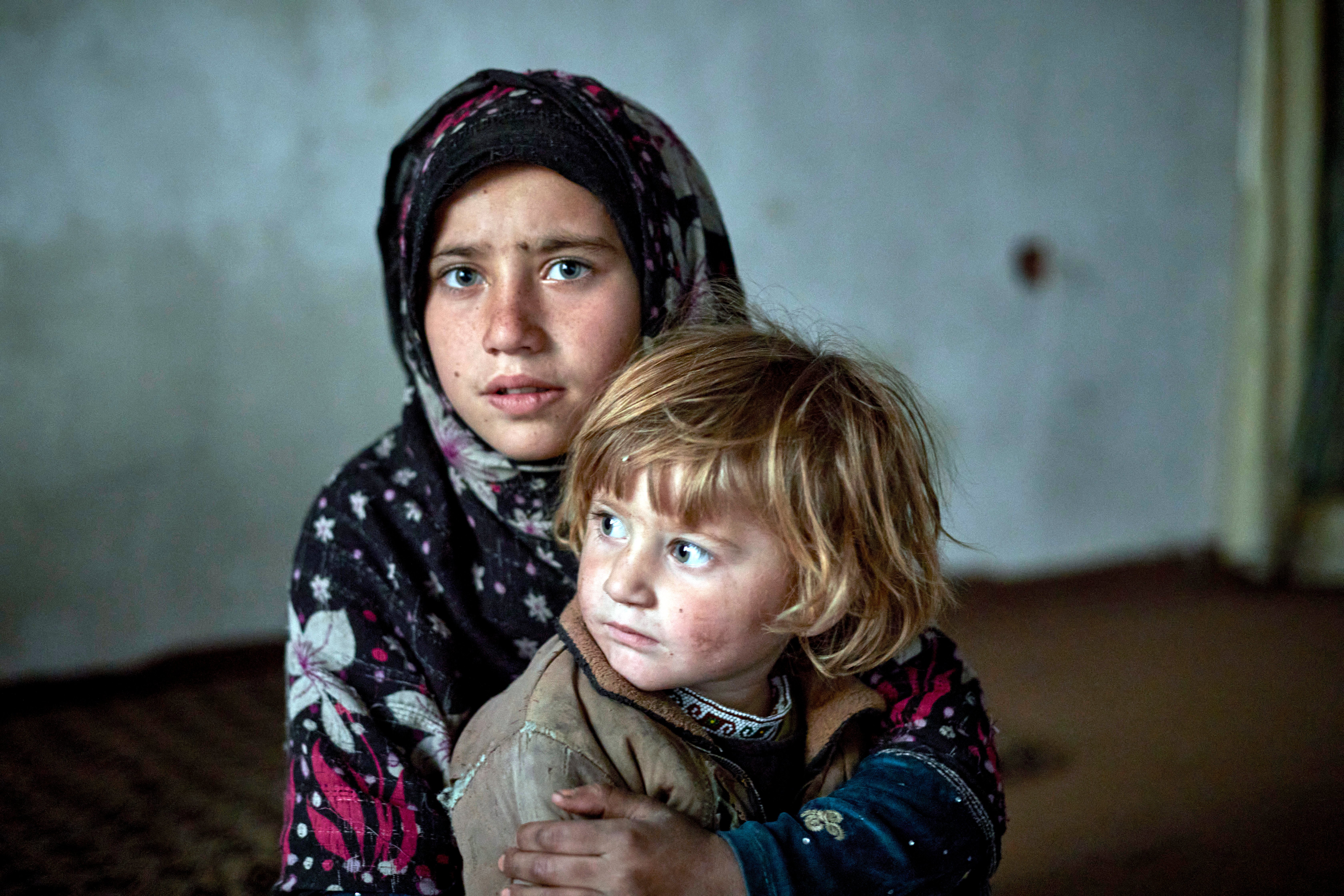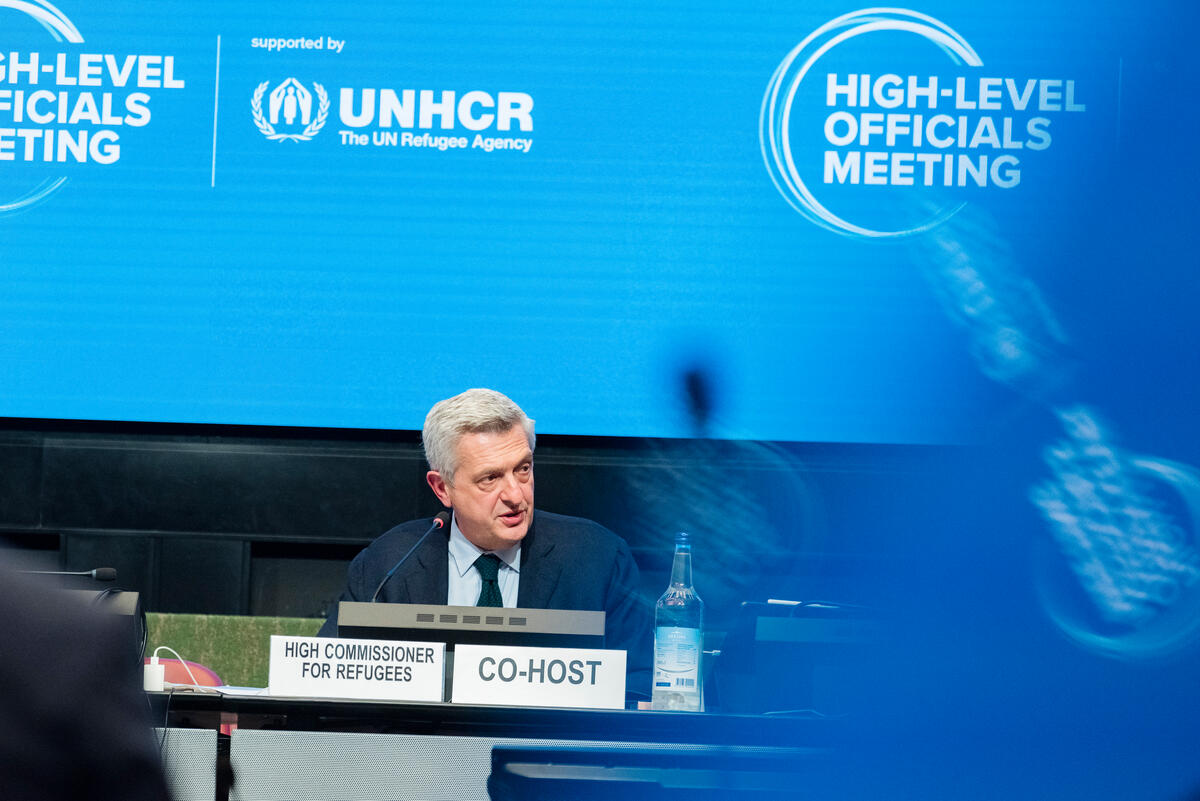Star-crossed Angolan refugee begins a new life in Canada
Star-crossed Angolan refugee begins a new life in Canada

KIMPESE, Democratic Republic of the Congo, September 4 (UNHCR) - Life has been very hard on Christine Dimfueni, but the 34-year-old Angolan's luck began to change earlier this year when she was accepted for resettlement in Canada.
Dimfueni and her three surviving children, who had found it hard to win acceptance here in the Democratic Republic of the Congo (DRC), flew to Quebec in late July under UNHCR's resettlement programme with Canada. Because quotas are tight, few refugees get to win coveted resettlement places.
"I will find work and also learn how to read and write," the determined widow said excitedly before she left this dusty town in the west of the country. "I can do any work, but I think mostly I will do housework or work in plantations if they have these," she added.
"The best thing is my children will become Canadian," said Dimfueni, who explained that one of the main reasons she wanted to leave DRC was because she and her family were not accepted by anyone, including her fellow Angolans.
Resettlement in Canada will offer her an opportunity for a much better life, after years of personal hardship and tragedy, including the loss of her parents at an early age, the murder of her Guinean husband and the death of a child.
Dimfueni was born in the Angolan town of Maquela do Zombo in 1970, but she knows almost nothing of her homeland and cannot even speak Kikongo - the language spoken by most of the Angolan refugees and many people in DRC.
In 1972, she fled across the border to DRC - then known as Zaire - to escape fighting between the Portuguese colonial administration and Angolan independence fighters. But both parents were dead before Dimfueni reached the age of five - her mother succumbed to tuberculosis and her father was killed fighting against the Portuguese.
She lived on the streets of Kinshasa before ending up across the Congo River in Brazzaville, capital of the Republic of Congo, where she worked as a domestic. "By the time I was 10, I was working as a housegirl. I worked for many families in Brazzaville. Sometimes I stayed for only a few days because some people were very cruel," Dimfueni recalled in a mix of French and Lingala, a dialect spoken in parts of the DRC. "There were times I was not given anything to eat."
In 1990, she met Moussa Traore, a Guinean businessman working in Brazzaville. They married soon after and had four children, including twins. They lived for the next three years with her in-laws near the town of Kindia in Guinea before returning to Brazzaville.
"We liked it in Brazzaville," Dimfueni said. But fresh tragedy would soon blight her life when the country was plunged into civil war. On December 18, 1998, as fighting swept through the capital, armed men burst into their house and shot Traore dead in front of his family. Dimfueni fled back to DRC, but one of her children died of disease during the flight.
She and the remaining three children settled at Kimaza camp with tens of thousands of other refugees. But after deep divisions along ethnic lines emerged in the camp, the outsider Angolan and her part Guinean children were moved to Nkondo, a camp for Angolan refugees.
They did not fit in there. When UNHCR in 2003 launched a programme to repatriate the Angolans, Dimfueni realised that she felt no connection to Angola and its people - she sought a way out.
She thought about - and rejected - the possibility of going to Guinea, returning to Brazzaville or staying in the DRC. "Where is the future here," Dimfueni asked as she looked around Kimpese, where she lived in a tiny mud-brick house. She moved there early last year, after the phase-out of UNHCR assistance programmes for Angolan refugees.
Dimfueni was not aware of the possibility of resettlement, but she did want a fresh start and asked UNHCR to help find a solution. The refugee agency came through and she was among just 31 refugees in the DRC accepted in 2005 for resettlement in Canada and Italy.
"I know that life will be different in Canada. You see here [in Kimpese] when you don't have salt you knock on the neighbour's door and they'll give you some, but there I know that everyone must take care of themselves," Dimfueni said.
"Food will not be the same, we will not get pondu (cassava leaves prepared with palm oil and dried fish), but we will not have to struggle to get something to eat. The children will sleep on beds and not on a mat on the floor. Maybe everyone will have their own room, it will be different," she added.
Quebec will bring new challenges and adventures, but Dimfueni and her family can finally stop running.
By Millicent Mutuli in Kimpese, Democratic Republic of the Congo









